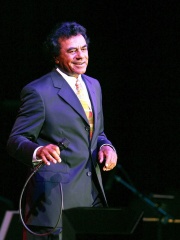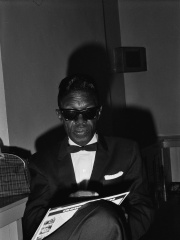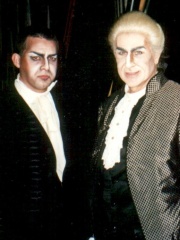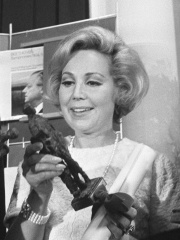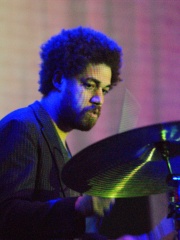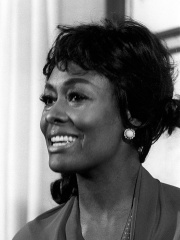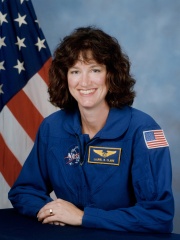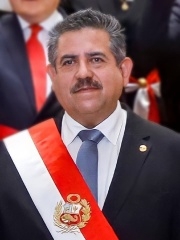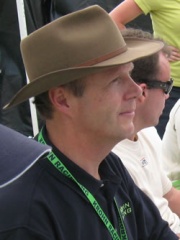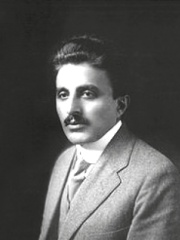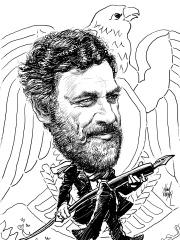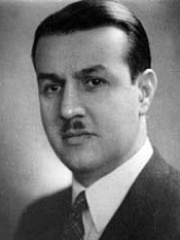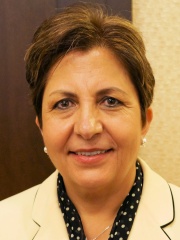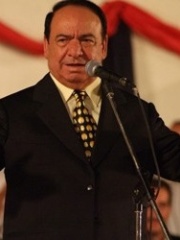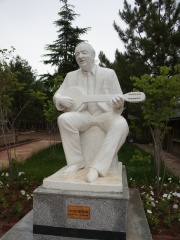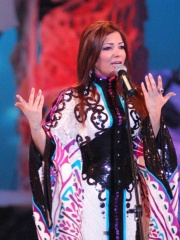Singer
George Wassouf
1961 - today
EN.WIKIPEDIA PAGE VIEWS (PV)
 George Wassouf
George Wassouf
His biography is available in 20 different languages on Wikipedia (up from 18 in 2024). George Wassouf is the 1,364th most popular singer (down from 1,312th in 2024), the 173rd most popular biography from Syria (down from 164th in 2019) and the 3rd most popular Syrian Singer.
Memorability Metrics
Page views of George Wassouf by language
Among Singers
Among singers, George Wassouf ranks 1,364 out of 4,381. Before him are Steve Porcaro, Marilyn Miller, Johnny Mathis, Lightnin' Hopkins, Sherrill Milnes, and Anneliese Rothenberger. After him are Enrique Morente, Timo Kotipelto, Danger Mouse, Leonie Rysanek, Dima Bilan, and Shirley Verrett.
Most Popular Singers in Wikipedia
Go to all RankingsSteve Porcaro
1957 - Present
HPI: 55.92
Rank: 1,358
Marilyn Miller
1898 - 1936
HPI: 55.91
Rank: 1,359
Johnny Mathis
1935 - Present
HPI: 55.91
Rank: 1,360
Lightnin' Hopkins
1912 - 1982
HPI: 55.87
Rank: 1,361
Sherrill Milnes
1935 - Present
HPI: 55.86
Rank: 1,362
Anneliese Rothenberger
1926 - 2010
HPI: 55.86
Rank: 1,363
George Wassouf
1961 - Present
HPI: 55.84
Rank: 1,364
Enrique Morente
1942 - 2010
HPI: 55.83
Rank: 1,365
Timo Kotipelto
1969 - Present
HPI: 55.82
Rank: 1,366
Danger Mouse
1977 - Present
HPI: 55.82
Rank: 1,367
Leonie Rysanek
1926 - 1998
HPI: 55.81
Rank: 1,368
Dima Bilan
1981 - Present
HPI: 55.79
Rank: 1,369
Shirley Verrett
1931 - 2010
HPI: 55.79
Rank: 1,370
Contemporaries
Among people born in 1961, George Wassouf ranks 274. Before him are Sigrid Kaag, Laurel Clark, Marc-André Hamelin, Manuel Merino, Yang Mi-kyung, and Tom Byron. After him are Timur Bekmambetov, Ronald J. Garan Jr., Claude Puel, Eric van de Poele, Eric Chu, and Greg Egan.
Others Born in 1961
Go to all RankingsSigrid Kaag
POLITICIAN
1961 - Present
HPI: 56.04
Rank: 268
Laurel Clark
ASTRONAUT
1961 - 2003
HPI: 55.92
Rank: 269
Marc-André Hamelin
MUSICIAN
1961 - Present
HPI: 55.89
Rank: 270
Manuel Merino
POLITICIAN
1961 - Present
HPI: 55.89
Rank: 271
Yang Mi-kyung
ACTOR
1961 - Present
HPI: 55.87
Rank: 272
Tom Byron
ACTOR
1961 - Present
HPI: 55.86
Rank: 273
George Wassouf
SINGER
1961 - Present
HPI: 55.84
Rank: 274
Timur Bekmambetov
FILM DIRECTOR
1961 - Present
HPI: 55.79
Rank: 275
Ronald J. Garan Jr.
ASTRONAUT
1961 - Present
HPI: 55.77
Rank: 276
Claude Puel
COACH
1961 - Present
HPI: 55.76
Rank: 277
Eric van de Poele
RACING DRIVER
1961 - Present
HPI: 55.71
Rank: 278
Eric Chu
POLITICIAN
1961 - Present
HPI: 55.69
Rank: 279
Greg Egan
WRITER
1961 - Present
HPI: 55.69
Rank: 280
In Syria
Among people born in Syria, George Wassouf ranks 173 out of NaN. Before him are Issam Zahreddine (1961), Ameen Rihani (1876), Suheil al-Hassan (1970), Abu'l-Hasan al-Uqlidisi (920), Zakaria Tamer (1931), and Ila-kabkabu (-1850). After him are Ali Farzat (1951), Suat Hayri Ürgüplü (1903), Mohammed al-Bashir (null), Abu Shama (1203), Mazloum Abdi (1967), and Wafa Sultan (1958).
Others born in Syria
Go to all RankingsIssam Zahreddine
MILITARY PERSONNEL
1961 - 2017
HPI: 56.73
Rank: 167
Ameen Rihani
WRITER
1876 - 1940
HPI: 56.73
Rank: 168
Suheil al-Hassan
MILITARY PERSONNEL
1970 - Present
HPI: 56.66
Rank: 169
Abu'l-Hasan al-Uqlidisi
MATHEMATICIAN
920 - 980
HPI: 56.34
Rank: 170
Zakaria Tamer
WRITER
1931 - Present
HPI: 56.20
Rank: 171
Ila-kabkabu
POLITICIAN
1850 BC - 1815 BC
HPI: 55.97
Rank: 172
George Wassouf
SINGER
1961 - Present
HPI: 55.84
Rank: 173
Ali Farzat
POLITICIAN
1951 - Present
HPI: 55.75
Rank: 174
Suat Hayri Ürgüplü
POLITICIAN
1903 - 1981
HPI: 55.69
Rank: 175
Mohammed al-Bashir
POLITICIAN
HPI: 55.64
Rank: 176
Abu Shama
HISTORIAN
1203 - 1267
HPI: 55.55
Rank: 177
Mazloum Abdi
MILITARY PERSONNEL
1967 - Present
HPI: 55.26
Rank: 178
Wafa Sultan
WRITER
1958 - Present
HPI: 55.18
Rank: 179
Among Singers In Syria
Among singers born in Syria, George Wassouf ranks 3. Before him are Sabah Fakhri (1933), and Aram Tigran (1934). After him are Omar Souleyman (1966), and Assala Nasri (1969).
Sabah Fakhri
1933 - 2021
HPI: 61.62
Rank: 1
Aram Tigran
1934 - 2009
HPI: 59.84
Rank: 2
George Wassouf
1961 - Present
HPI: 55.84
Rank: 3
Omar Souleyman
1966 - Present
HPI: 54.60
Rank: 4
Assala Nasri
1969 - Present
HPI: 51.14
Rank: 5



